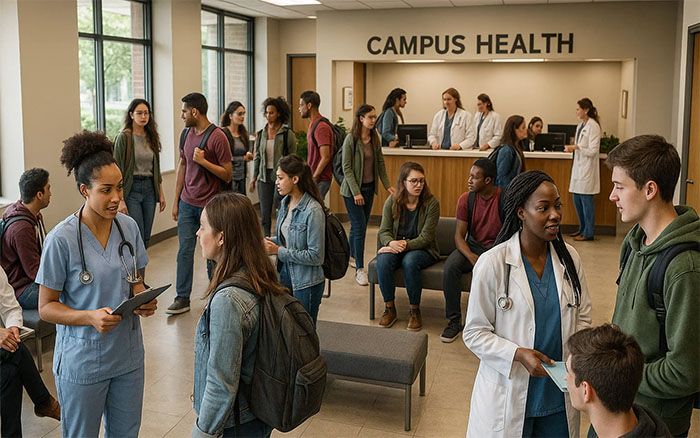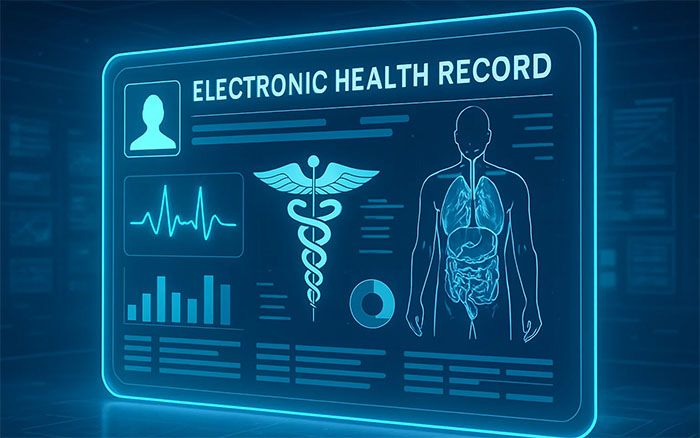The Role of College Health Services in Managing Complex Health Conditions
In 2019, the Centers for Disease Control and Prevention (CDC) reported that “more than one-half (53.8%) of adults aged 18–34 years reported having at least one chronic condition, and nearly one-quarter (22.3%) reported having more than one chronic condition.”
Given these significant numbers, college health centers play a critical role in managing complex health conditions among students, such as diabetes and epilepsy. College health centers need to adopt multifaceted strategies to effectively support students’ health and well-being.
In this blog, we’ll delve into the challenges students with complex health conditions encounter and offer practical strategies to help your campus provide them with the best possible college experience.
1. Addressing Challenges Faced by Students with Complex Health Conditions
Students with complex health conditions often struggle with balancing their health needs and academic demands. Frequent monitoring, medication management, and emergency preparedness are key aspects that require robust support systems within college health services.
2. How College Health Centers Can Help
- Personalized Care Plans: Proactively develop individualized care plans that cater to the specific needs of each student, including regular check-ups and tailored treatment plans. Creating these plans when students identify their health needs is key. Your health center may also consider offering to coordinate with specialists and external resources to ensure comprehensive care.
- Accessible Resources: Ensure students easily access necessary medical supplies and medications. For those who become newly diagnosed while enrolled as a student, taking the time to provide educational resources can help them manage their conditions effectively. Additionally, clear communication channels should be established for students to reach healthcare providers and support staff for timely assistance and guidance. More information on improving health communication in higher education can be found here.
- Emergency Protocols: Establish clear emergency protocols and train staff to respond promptly to health crises. Additionally, conduct regular emergency drills and ensure all staff are familiar with students’ specific health needs and emergency response procedures.
3. Creating a Supportive Environment
- Awareness and Education: Conduct awareness campaigns and educational workshops to inform the campus community about various health conditions and how to support affected individuals. For example, host several events for Arthritis Awareness Month with activities such as informational booths, guest speakers, and practical workshops on managing arthritis pain and joint health.
- Peer Support Groups: Facilitate peer support groups where students can share experiences and coping strategies. This can be accomplished by establishing a weekly support group for students with chronic health conditions to discuss challenges, exchange advice, and offer mutual encouragement in managing their health.
- Counseling Center Integration: Ensure that your campus offers counseling services specifically for students with chronic conditions. Proper staff training to treat students with these health issues is crucial to ensure a supportive and understanding environment that fosters their academic and personal growth.
4. Utilizing Technology
- Electronic Health Records (EHRs): Leverage a comprehensive EHR system to streamline health information management, ensuring accurate and timely access to students’ medical histories, and enhancing coordination between healthcare providers and school staff, facilitating better-informed care decisions.
- Telehealth Services: Furthermore, you may want to consider implementing telehealth options to provide convenient and flexible care, reducing the need for in-person visits and accommodating students’ busy schedules. This makes health services much more accessible for students with health issues that may prevent them from coming in for an in-person visit. This can also help with reducing the number of no-shows.
- Health Monitoring Apps: Encourage the use of health monitoring apps that help students track their conditions and communicate with healthcare providers in real-time. This can support proactive health management and empower students to take charge of their well-being as they grow into adulthood.
5. Collaborating with External Resources
- Specialist Referrals: Establish partnerships with local healthcare providers and specialists to offer comprehensive care beyond what the college health center can provide. For instance, collaborate with nearby cardiologists for students managing hypertension or pulmonologists specializing in asthma to ensure students receive the specialized care they need.
- Community Resources: Connect students with community resources and support networks to ensure they receive holistic care. This may include collaboration with local diabetes organizations to provide students with access to specialized medical care, nutritional counseling, and peer mentoring programs.
- Training and Development: Engage in ongoing training and development for health center staff to stay updated on best practices and advancements in managing complex health conditions.
6. Key Takeaways
College health centers are crucial for enhancing college students’ experience. They offer care and resources that empower students to manage their health and excel academically, supporting everything from minor issues like colds and flu to complex conditions such as arthritis and kidney disease. By leveraging technology and collaborating with specialists, these centers ensure students receive holistic care, contributing to a successful college journey.














